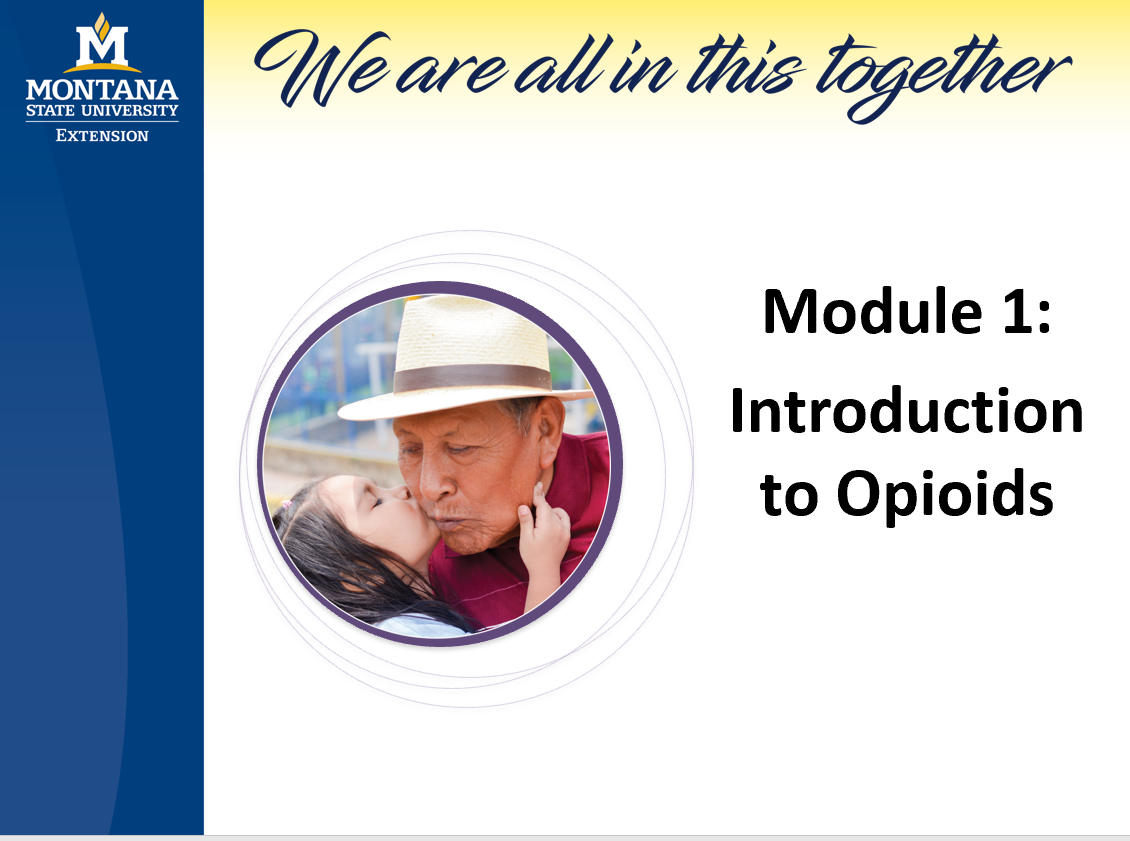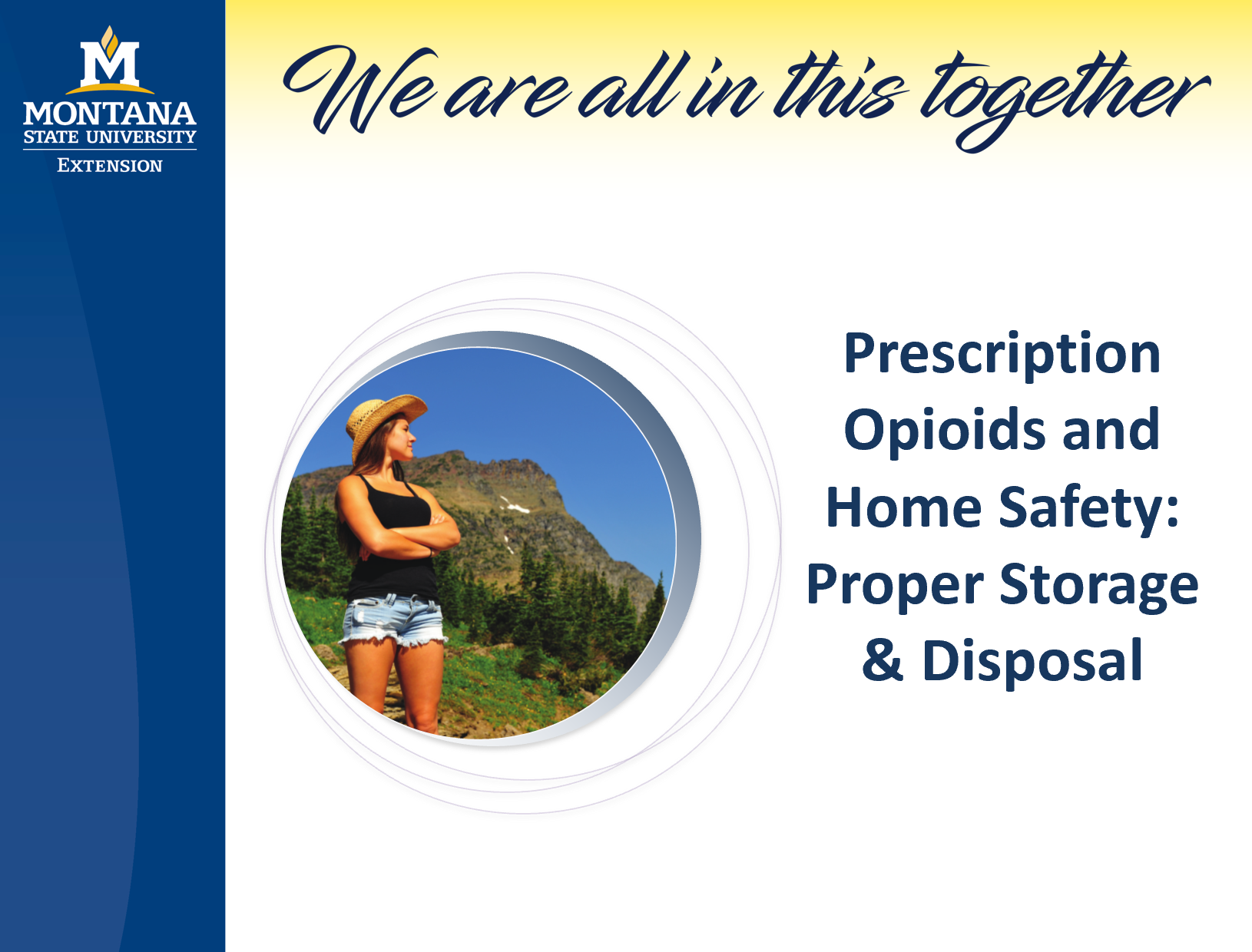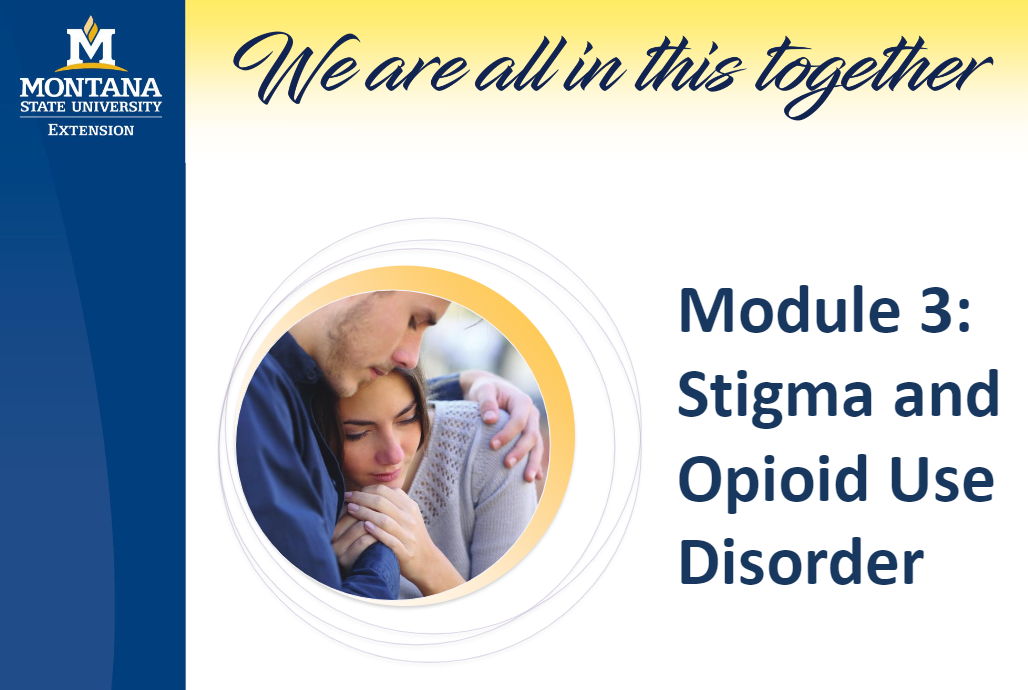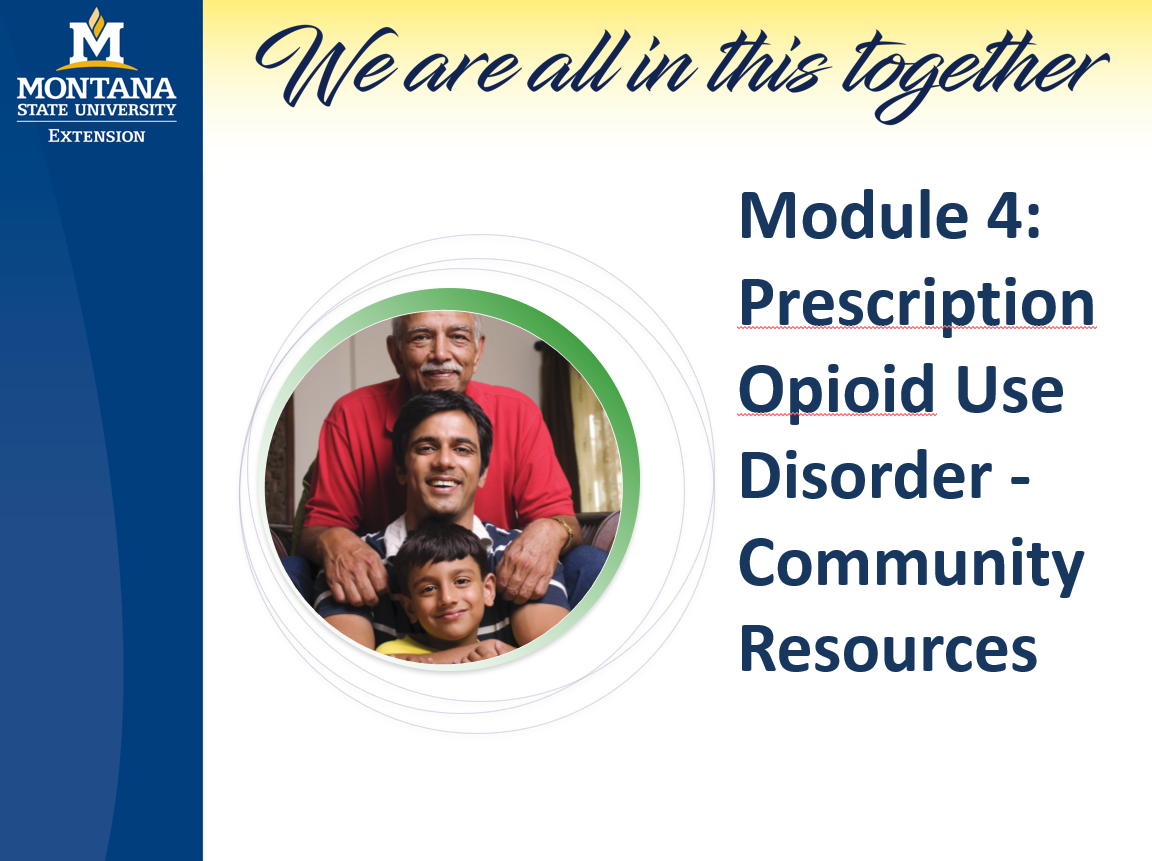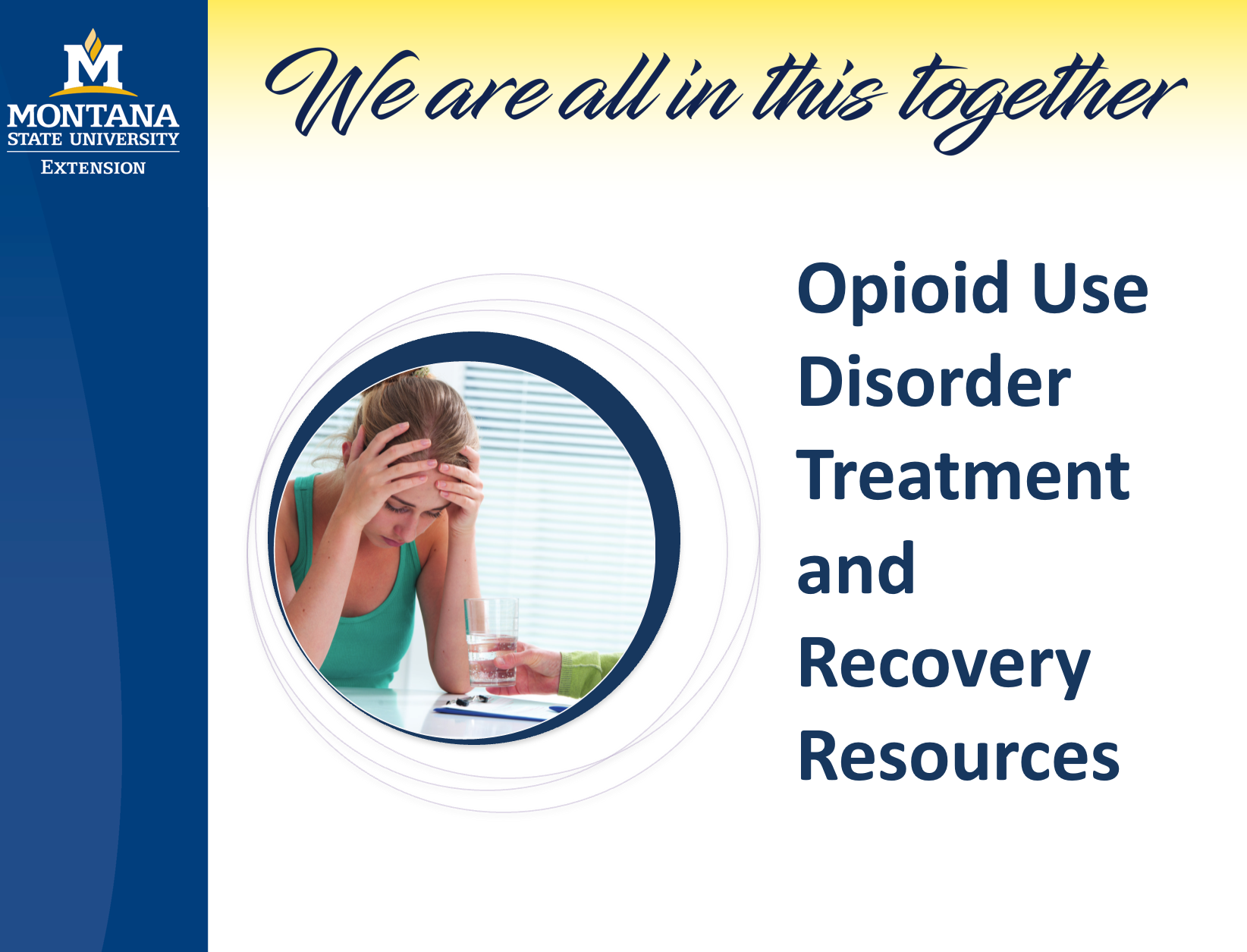Prescription Opioid Education and Awareness Toolkit
There are two ways to access the toolkit content and materials:
1. Contact your local County Extension office (Each County Extension Office across Montana has access to two Prescription Opioid Education and Awareness toolkits for organizations to checkout and facilitate the information to community members. Each toolkit contains a flash drive for facilitators to easily access the presentations within each module.
2. Click on the links provided below to access the content online. (The content in each module can be viewed, downloaded, and printed).
Read an overview of each module below.
Please note: If you facilitate one or more of the modules within this toolkit we would like to get your feedback. Access the Facilitator Evaluation Form Here
For questions please email the project director [email protected]
Module 1: This module gives audiences an introduction to opioids and how they work in the body. It dives into the history of prescription opioid use and the opioid epidemic. Module 1 provides the names of commonly prescribed opioids, their side effects, and the associated risks for both physical and mental health. Module 1 teaches the audience signs to look for in somone who is using prescription opioids in a non-medical way, signs of Opioid Use Disoder (OUD), and signs that someone is overdosing on prescription opioids and what to do. This module is packed with up-to-date statistical information from reliable sources including, SAMHSA, CDC, MSU-Extension research, MT DPHHS, MT Youth Behavior Risk Survey.
Module 2: This module gives audience the information they need to help prevent prescription opioid misuse and overdose by providing information about the safe storage and dispose of prescription opioid medications. The module brings to light the importance of this safety topic not only for children and teens in the home but also for aging adults who may have an in-home caregiver. Module 2 provides several different disposal methods that are safe for the environment, septic systems, pets, and children. The audience also will learn about drug diversion and how proper storage and disposal can prevent not only misuse but, overdose and Opioid Use Disorder from occurring.
Module 3: This module provides audiences with an understanding of how the stigma surrounding substance use disorders like Opioid Use Disorder (OUD)can hinder a persons access to treatment services. The module talks in detail about seven types of stigma and how each play a part in society. Audiences learn to identify stigmatizing language along with language alternatives for use when talking with persons with addictive disorders, community members, friends, family, and healthcare/community health professionals. This module shares testimonials from patients and providers who have spoken out on the topic of stigma and how it negatively effects someone who has a substance use disorder at the social, community, family, peer, and individual levels. It also demonstrates ways in which audience members can either positively or negatively effect change. Module 3 also introduces the evidenced-based treatment option called Medication-Assisted Treatment, or MAT. Participants will hear how stigma surrounding this effective treatment program prevents people from seeking treatment. By educating ourselves, then our peers, we can change the stigma surrounding OUD and it's treatment options.
Module 4: This module provides audiences with federal, state and local prevention, treatment, and recovery resources for Opioid Use Disorder(OUD) and Mental Health Disorders. Module 4 is packed with resource links to webpages from accredited and culturally relevant organizations including the Substance Abuse and Mental Health Services Administration (SAMHSA), Montana Department of Health and Human Services, Indian Health Services (a branch of DPHHS), Montana Rocky Mountain Tribal Leaders Council, and any organizations within each county. County Extension Agents facilitating use of this toolkit module can customize it to reflect local level resources for their audience.
Bonus Module (Module 5): This module gives the audience a glimpse into evidenced-based treatment and recovery options available to persons with Opioid Use Disorder(OUD). The audience will learn what Medication-Assisted Treatment (MAT) for OUD is and why it is an evidenced-based treatment. Module 5 explores the history of MAT and the different ways MAT can be administered to persons with OUD. In this module, the auidence will get a break down of each of the three FDA approved medications for treating OUD, information on how t, and an understanding of side effects. Module 5 provides explores recovery- based approaches like peer support and Recovery Oriented Systems of Care (ROSC). MAT aligns with the Integrated Health Care Approach commonplace in today's health care system and highlights the positive outcomes MAT can provide for persons with OUD. This module provides links to treatment providers in Montana offering MAT services.
Whether you are a facilitator, someone interested in facilitating this toolkit in your community, or a someone who has attended a presentation with these modules, your questions can be directed to our Project Director Barbara Allen at [email protected]

